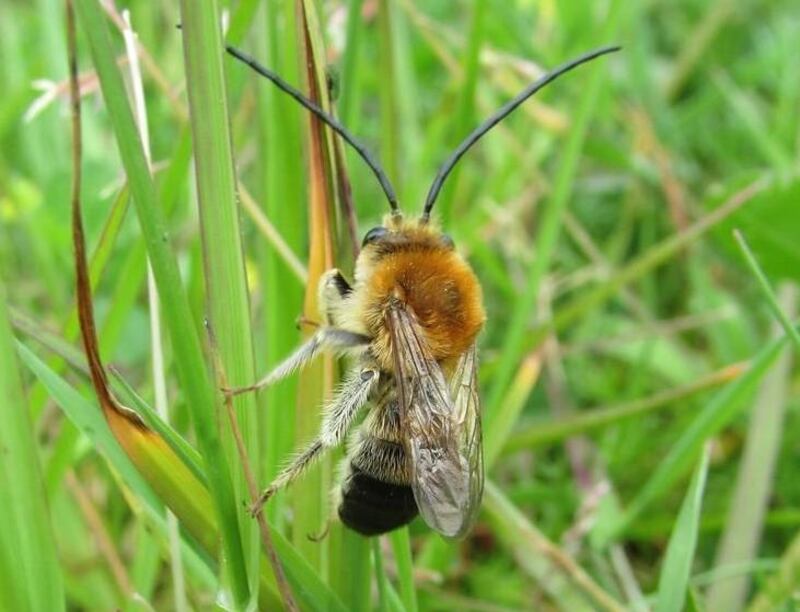A colony of one of the UK’s rarest bees has been identified thanks to the support of the Mohamed bin Zayed Species Conservation Fund.
The long-horned bee, otherwise known as Eucera longicornis, was once widespread in southern England, but has suffered a serious decline in recent years due to a number of threats, Wam reported.
They include the disappearance of the pea plants they feed on, the move away from clifftop animal grazing, increasingly intensive agriculture and coastal erosion, which has removed a number of nesting sites.
________________
Read more:
[ Why rare bees in the UK deserve support from the UAE ]
Sidr trees planted in Ras al Khaimah to help clean the air
Save the bees before it's too late
________________
Fewer than 30 known sites remain in Southern England, six of which are in the county of Cornwall in the south-west, where 18 sites have been lost. But a new site has been discovered by ecological consultant Kernow Ecology, that received a grant from the Mohamed bin Zayed Species Conservation Fund in 2017 to help protect the species.
“The fund's objectives include the raising of the importance of individual species in the broader debate about conservation through the provision of small, targeted grants to individual species conservation initiatives,” said Razan Khalifa Al Mubarak, managing director of the fund.
“The work in Cornwall provides an excellent example of how a small grant can make a real difference."






